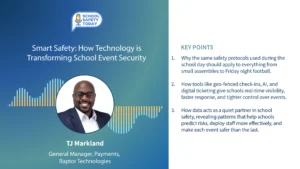Increasing Teachers’ Minimum Salaries Might Be on the Syllabus for 2023
Increasing teachers’ minimum salaries might be on the syllabus for 2023. $60,000. That’s the new national minimum salary for a public school teacher if U.S. representative Frederica Wilson, D-Fla., can find a way to get The American Teacher Act passed through congress in 2023.
Wilson, a long-time advocate for educators, believes increasing teachers’ minimum salaries is necessary if the U.S. wants to remain competitive in K-12 education globally. “As time has progressed, teachers’ salaries, minimum wage, has not been commensurate with other salaries in our economy, especially as it relates to Black men,” Wilson said.
The American Teacher Act would incentivize states to raise their minimum teacher salaries to $60,000 for public K-12 schools, utilizing a grant program at the Department of Education. This legislation would require yearly increases in line with inflation to support states’ ongoing efforts to ensure competitive wages.
Although teacher salaries fall as much as 23.5% lower than other comparable careers, the road to passage of The American Teacher Act is likely to be long. And, if passed, will it solve the issues facing teachers today?
Michael Horn, the host of the Future of Education, isn’t so sure.
Michael’s Thoughts
“Lawmakers introduced to legislation to try to stem the tide of teachers leaving the profession of K-12 education by introducing a bill that would create a minimum $60,000 a year salary for all teachers. First, it’s not clear that Congress can actually do this. This is the domain of local districts, states, bargaining units, and so forth.
But second, even if they do, while the research shows that raising salaries can help eliminate dissatisfaction with a job, the research also shows that it will not make teachers more satisfied. To do that, you have to give more opportunities for advancement, responsibility, growth, recognition for the work that they’re doing, making the work itself far more manageable, and that work requires innovation in the schools themselves.”
Article by James Kent








